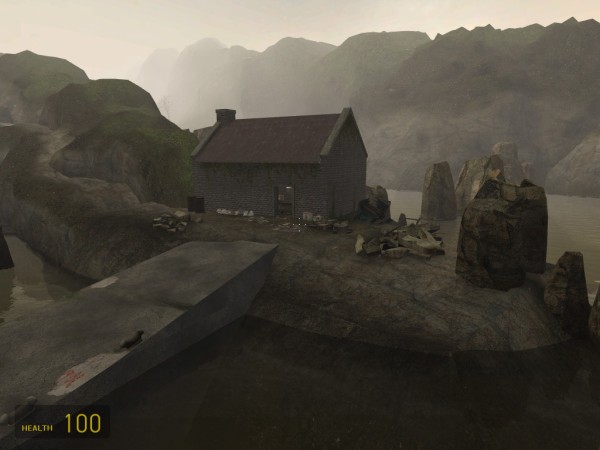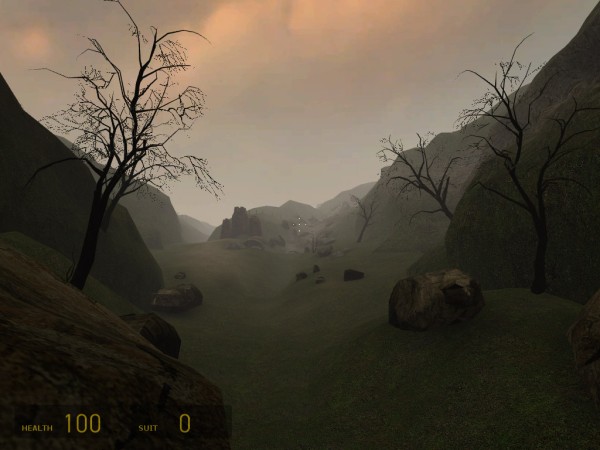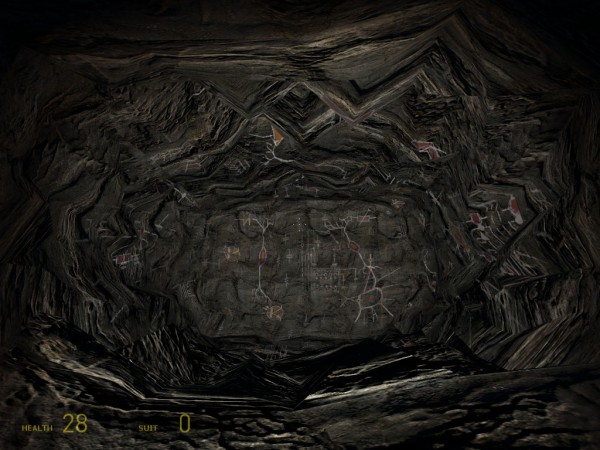Dear Esther
January 2024
Remember to check for any notes left by the tagger at this article's talk page.
▶ Download or launch this game*
Supported OS:
![]()
This mod for Source has been released! Download it now.
![]() Dear Esther is part of a research project, creating experimental game mods, based at the University of Portsmouth, UK. The aim was to use Source to create something radically different from normal: an interactive story that dispensed with traditional gameplay and focused instead on an open-ended, semi-random narrative.
Dear Esther is part of a research project, creating experimental game mods, based at the University of Portsmouth, UK. The aim was to use Source to create something radically different from normal: an interactive story that dispensed with traditional gameplay and focused instead on an open-ended, semi-random narrative.
The user navigates the environment, triggering audio fragments of a narrative which, together with visual clues and codes embedded in the world, build to create a story which is inherently constructed around the innate slippage of meaning and fragmentary nature of interactive experiences. To put it another way: it looks like a game, and feels like a game, but it's really something quite different.
As of 2025, the 2012 version of the game is no longer available on Steam in favor of "Dear Esther: Landmark Edition", which runs on Unity engine. However, the 2012 version is still available on Humble Store. The original 2009 SourceMod is also remains available on ModDB.
Features
- Explore the island to unlock the story and piece together the mystery
- Randomised narrative means a different version of the story is told every time
- Features a specially commissioned soundtrack by composer Jessica Curry
Media
Team
The Chinese Room is the name of a development-led research project based at the University of Portsmouth, UK and funded by the Arts & Humanities Research Council. The idea behind the project is simple: there are questions games researchers are interested in, that fall outside the kinds of media produced by industry. This gives us a choice, either we can discuss these questions theoretically, or we can take advantage of the rich culture of modding and availability of game engines and try and build media ourselves to tackle them. This second option- development-led research - is what thechineseroom is all about.
Over 2007-8, we have developed three mods, two in Source and one in idTech4, each pushing in a different direction. Dear Esther explores the use of FPS technologies to create an interactive storytelling experience, removing traditional gameplay. Conscientious Objector is a re-imagining of the opening of Doom 3, only this time with the ability the kill removed (i.e. you get the shotgun, but it's only got rubber bullets in it); and Antlion Soccer pushes the inherent sport of Deathmatch in a different direction (it's pretty much what it says on the tin - soccer with gravity guns and antlions).
The Chinese Room (Dear Esther team):
- Produced, written and designed by Dan Pinchbeck
- Environment built by Josh Short and Adam Griffiths
- Programming by Jonathon Brown
- Music by Jessica Curry
- Voice Acting by Nigel Carrington
Localized versions
This link goes through to 1.0, hosted at ModDB. There are some minor adjustments, mainly to displacements and a trigger location or two, to be carried out before 1.1 is released (probably Sept 08)


